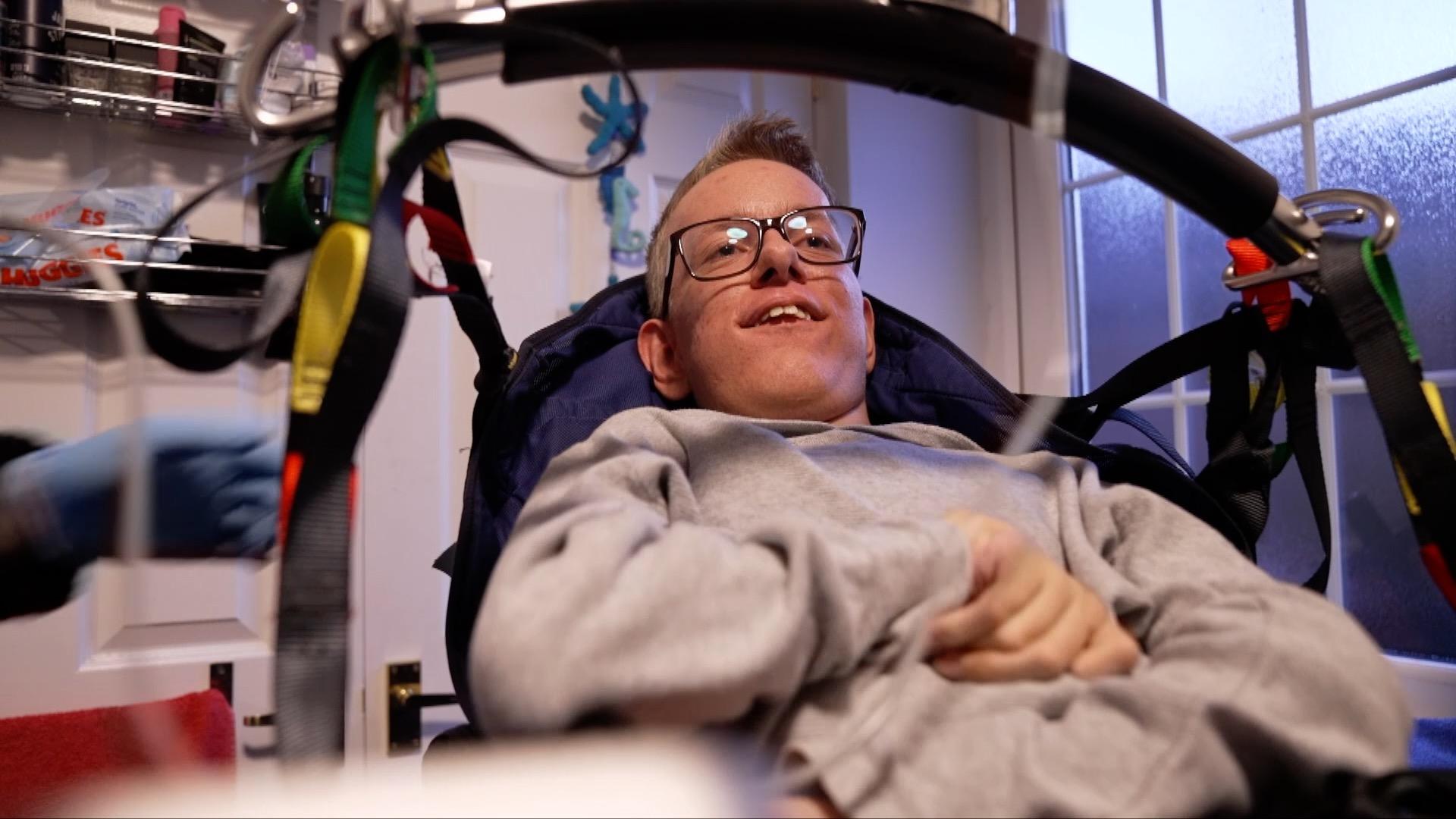'We won't let our disability stop us being independent'
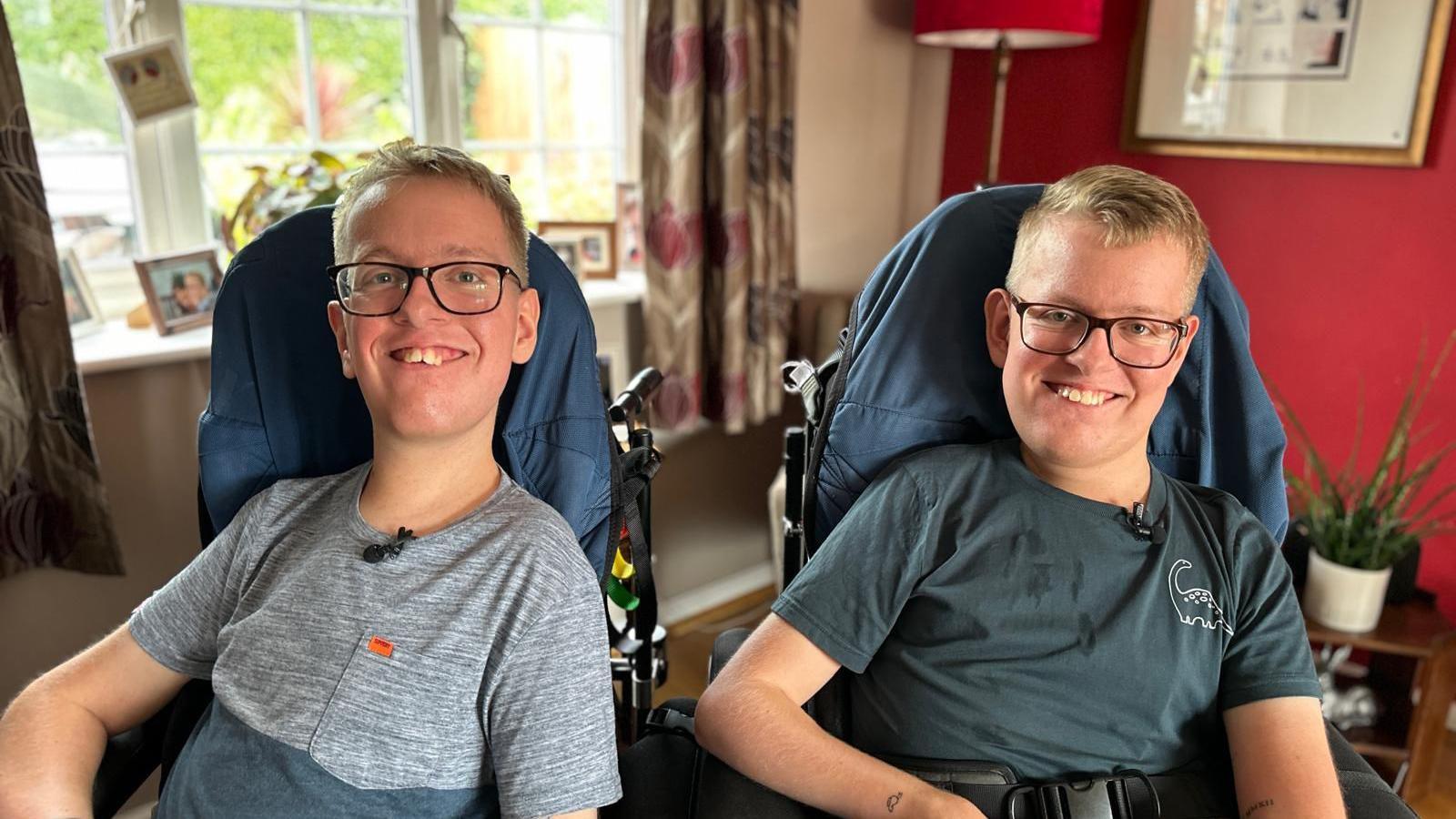
Alex and Sam say they are aiming to live "exceptional" lives
- Published
Buying your own home is a dream that can feel out of reach for many young people.
But for twins Sam and Alex Bolton, who have spinal muscular atrophy (SMA), they face even bigger hurdles to realise their ambition of living independently.
Their condition means the brothers, from Derby, use wheelchairs, have weaker muscles and face problems with movement.
Despite doctors saying they would not live past the age of seven, the brothers, now 19, are both studying a film and television degree at university.
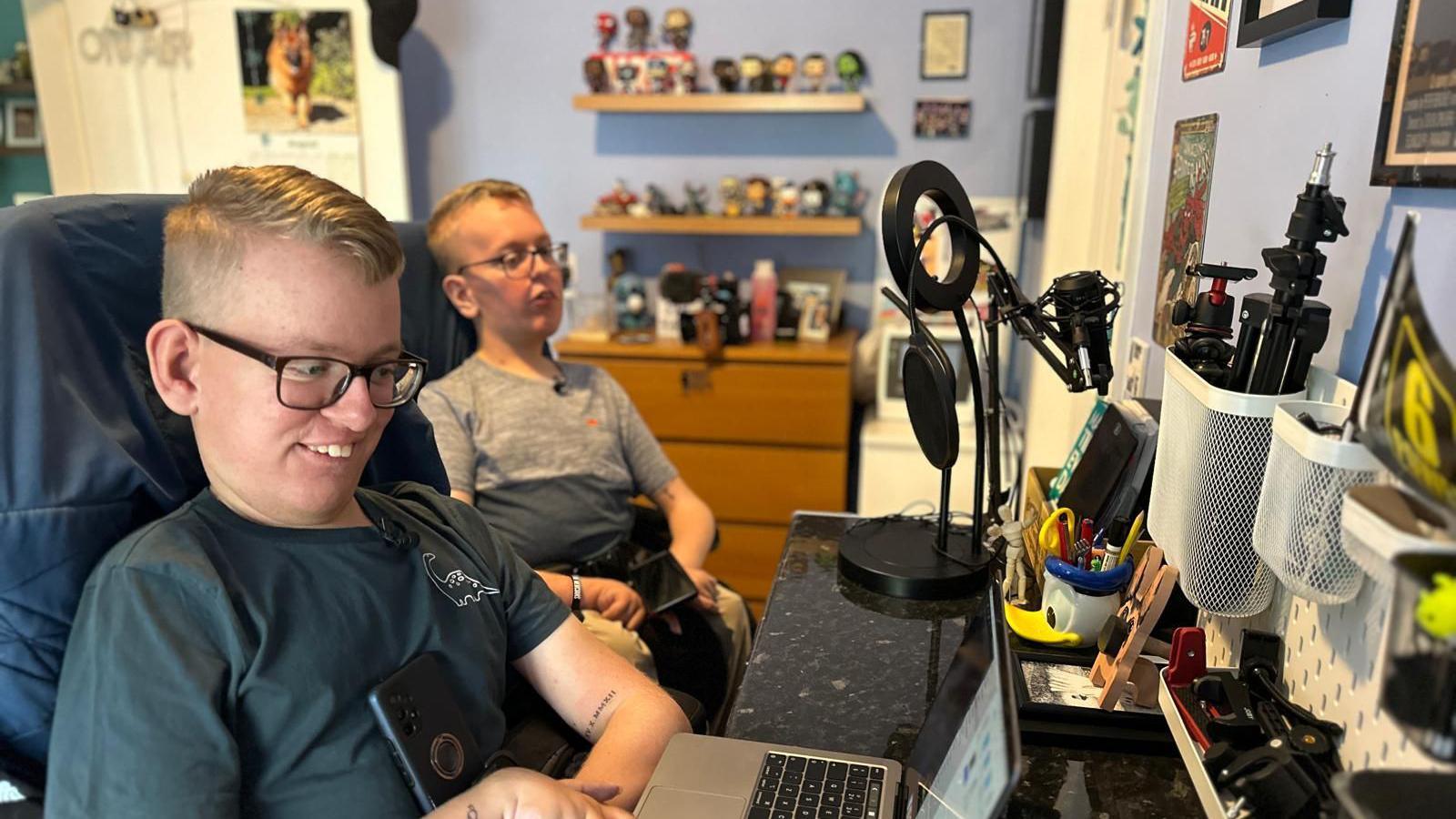
The brothers started studying at the University of Derby last year
They said they hoped to one day be able to live independently, but the cost that comes with making adaptions to make their homes accessible poses a huge challenge for them.
Alex said: "Without our benefits we are left needing to find a full-time job, which could have certain health risks for us working full days and getting tired.
"So it's not a feasible option to work full-time so we rely on these benefits that aren't sustainable for adults.
"When we grow up I'm hoping we don't live together. I quite like [Sam] but not enough to live with him for that long."
Sam added: "[We have] a muscle weakening condition that puts us in wheelchairs but on a daily basis we do our best not to let it stop us.
"Independence in the form of our own house will be one of those key steps to living not just a normal life but an exceptional life. That's what we hope to do."
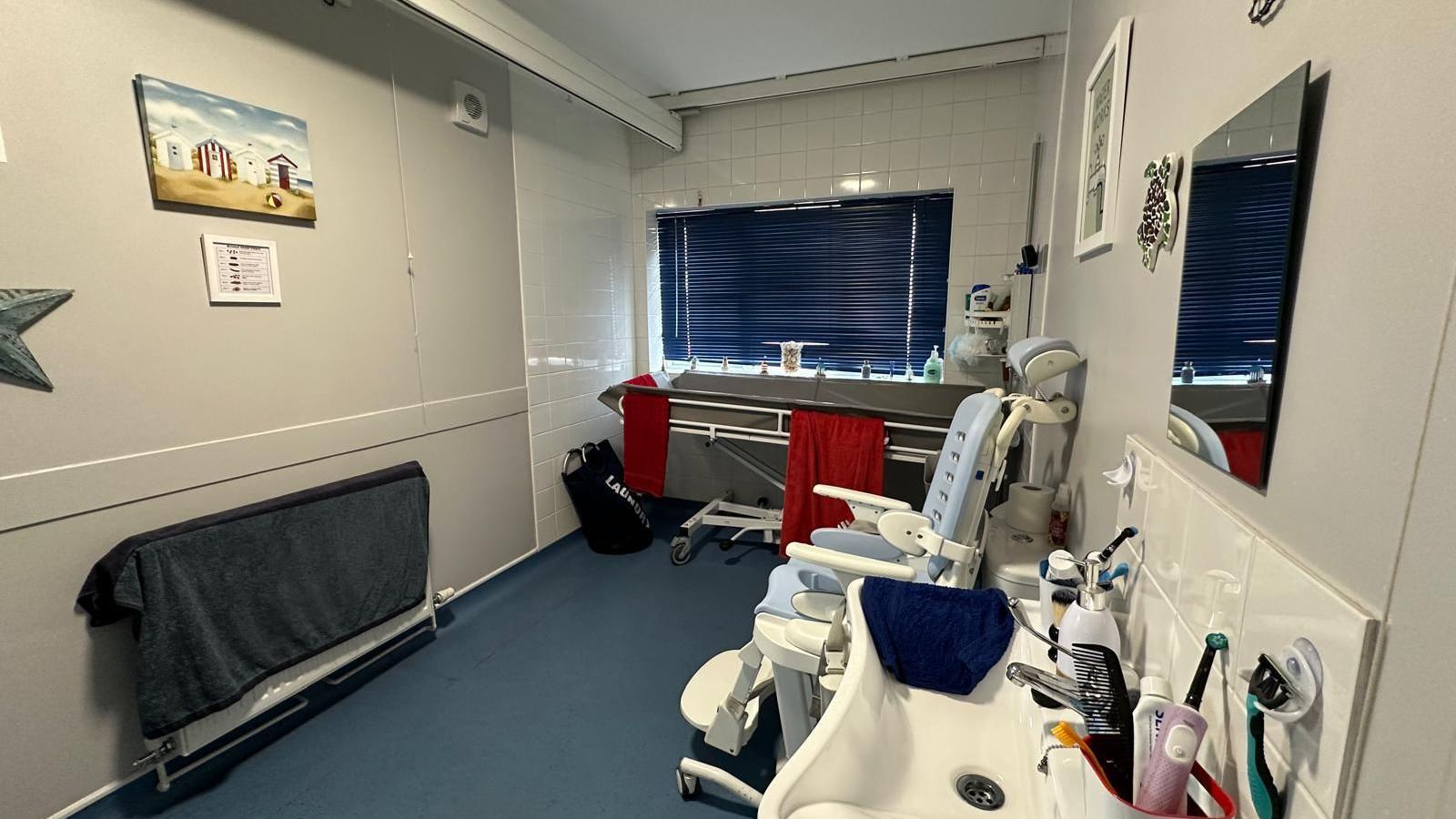
Thousands of pounds has been spent adapting their family home
When their landlord put their specially-adapted family home up for sale, they feared they would have to live in a hotel until alternative accommodation was arranged.
"We were told our house – the one we've rented for 15 years – was being sold and put on the market," Sam said.
"This period was one of the hardest of our lives, with the weight of the threat of homelessness on our shoulders every day.
"If this were happening to anyone else, they could find somewhere else – whether temporarily or permanently – and it would be acceptable.
"We were told we might be put in a hotel which doesn't consider our needs – there aren't many hotels anyway that can look after us for a weekend never mind until we find our new house."
A housing association then purchased the property so the family could continue living there - but the crisis made clear the problems they could face when owning a home of their own.
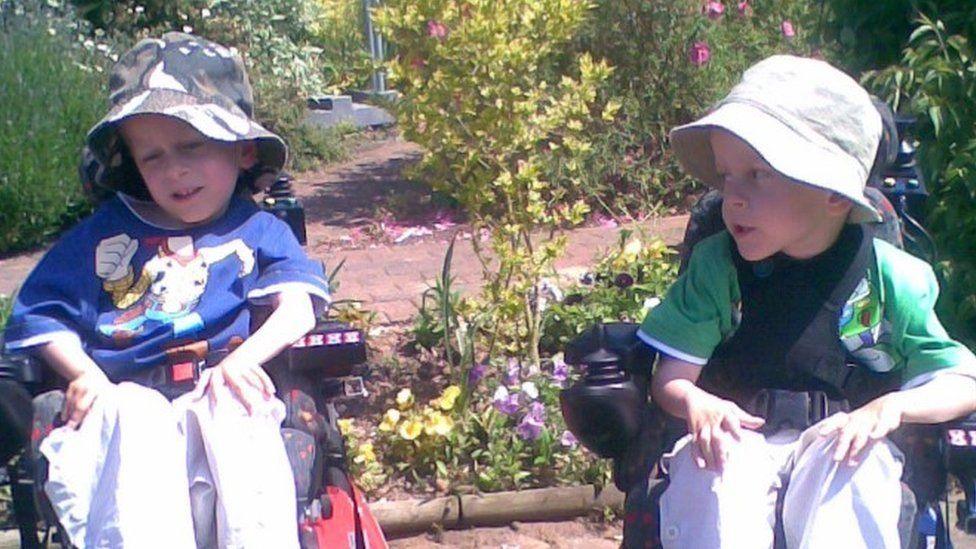
The twins were born with spinal muscular atrophy
Wednesday's Budget allocated £500m to the affordable homes programme, including supporting home ownership for people with long-term disabilities.
This is positive news for Sam and Alex, who have been campaigning for more support for people like them to get on the property ladder.
David Abbey, director of MySafeHome, helps people with disabilities apply for a specialist mortgage that supports them in buying a home of their own.
He said: "We welcome the top-up for the funding of the affordable homes programme. Obviously we'd like more because there's a high demand for homes especially for people with disabilities.
"We recognise that resources are limited but we're hopeful that a spending review in the spring of 2025 will set out the longer term of plan for affordable homes for all.
"[This includes] for people with disabilities who have sadly been excluded from home ownership in the past.
"Home is the foundation of a good life and so it's important that people have a real choice about where they live and also the type of properties they live in."
Get in touch
Tell us which stories we should cover in Derby
Follow BBC Derby on Facebook, external, on X, external, or on Instagram, external. Send your story ideas to eastmidsnews@bbc.co.uk, external or via WhatsApp, external on 0808 100 2210.
Related topics
- Published31 May 2023
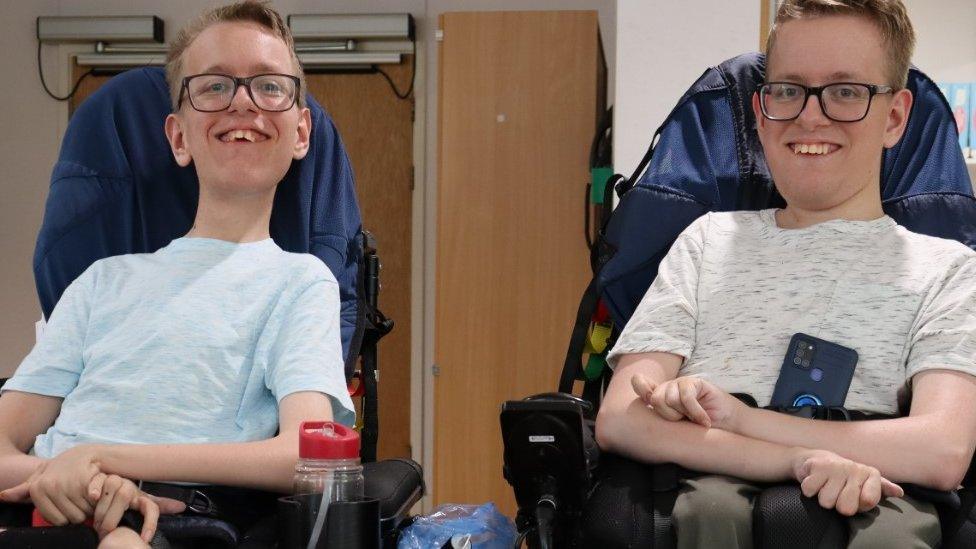
- Published2 December 2021
